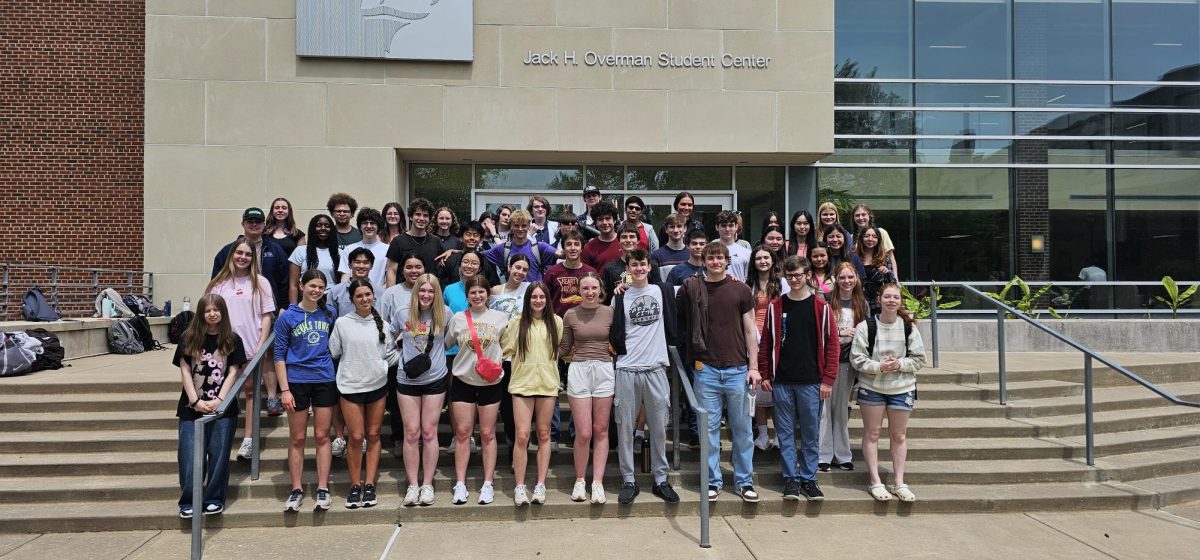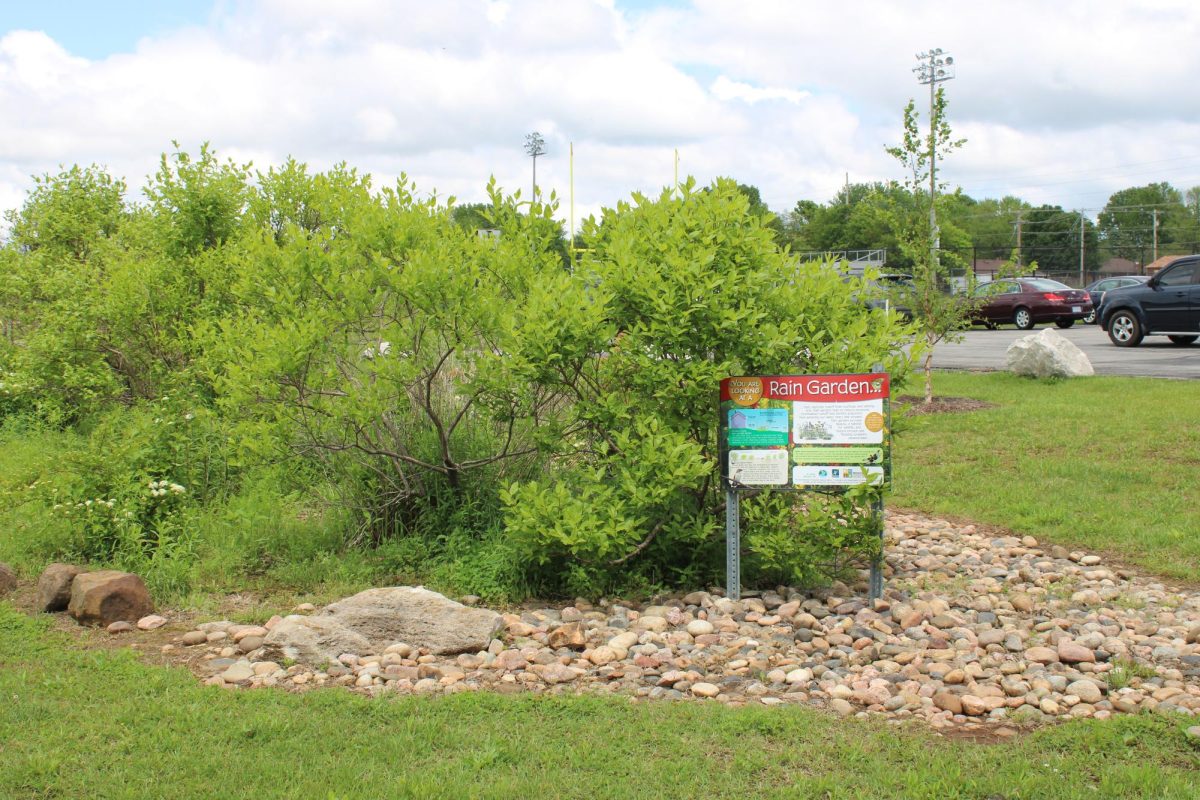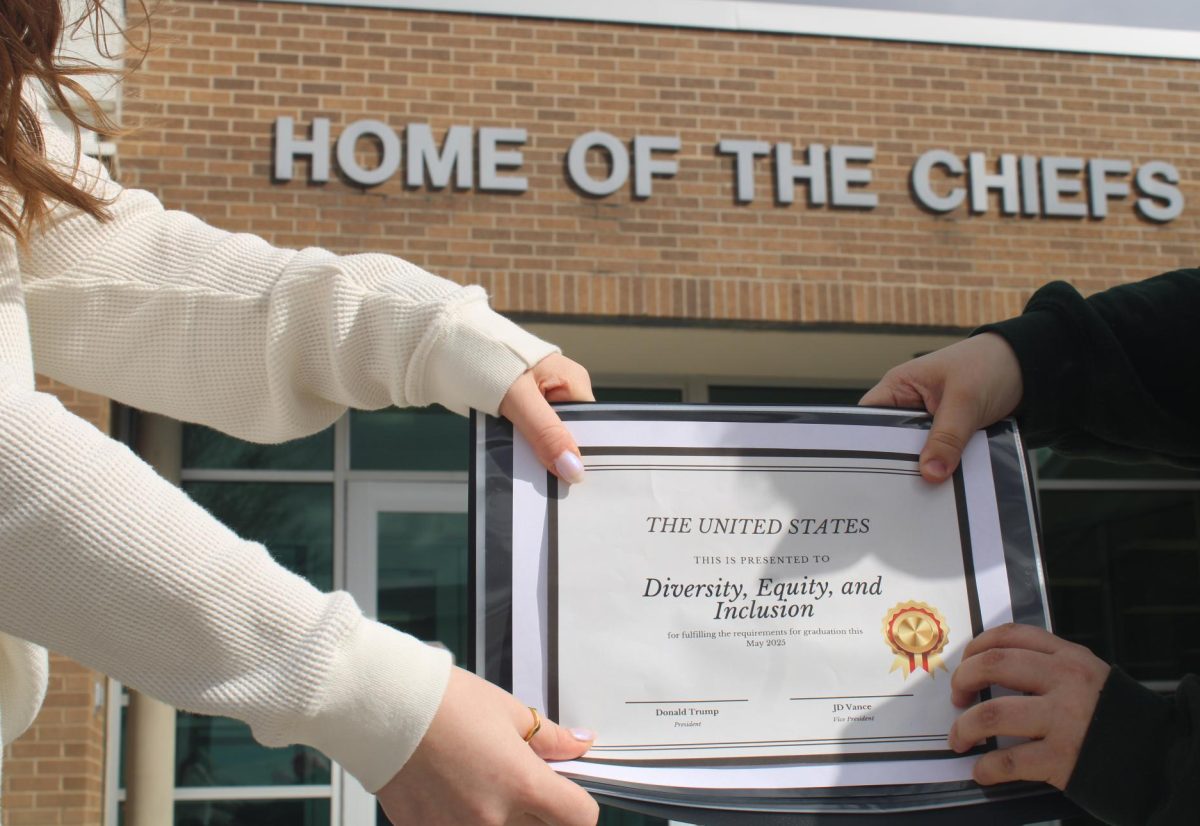Extracurricular programs are constantly changing and developing into bigger and better versions of themselves, and the Kickapoo Golden Arrow Band (KGAB) is no exception to this.
In recent years, the program has seen a steady influx in the number of students participating in band, largely due to the increasing number of students in each class, but also because more students are growing interested in the fine art.
Aaron Scriven, director of the KGAB explains that the program has seen a steady incline in students since COVID-19, and the program has truly started to heal as more and more are interested.
“My first year here was the post-covid year, so we were part time, we were virtual. We had a lot of kids. My second year we dropped to 160 [students.] Last year we were about 170, and this year we are at about 180 students. Next year’s projected enrollment is about 210.”
It is no secret that Covid had a detrimental impact on extracurriculars, but fine arts programs such as the KGAB arguably suffered the most.
Students were virtual, which resulted in an inability to get the help they needed to truly progress with their instruments, as well as the push needed to maintain motivation. We have finally reached a state of relative normalcy, and these programs are back in full swing.
“We are now coming out of the Covid years, and the middle school programs and the beginning band programs, I think have recovered, and more students are now enrolling in those classes, like it was before Covid, so those numbers are beginning to trickle into the high school,” Scriven adds.
This influx in population as well as general interest in the program has led to the ability for directors to create more advanced bands with more skilled students.
The current winter program is separated into three bands, the Freshman Band, the Intermediate Band, and the Advanced Band.
The Freshman Band is self-explanatorily freshmen who are newer to their instruments, and require more in depth instruction of the fundamentals. The Intermediate Band consists of mostly sophomores and juniors who are at an average skill level, although some advanced freshmen are sprinkled in. The Advanced Band is the most skilled of the three, with juniors and seniors, as well as a few highly skilled sophomores.

Directors have made the executive decision to revise these bands in the 2024-2025 school year. The directors are optimistic that this will result in better general performance, as well as help weed out the individuals that don’t contribute as much when it comes to playing, as well as general ability.
The revised bands will have different titles, as well as slight changes with participants. The Advanced Band will be called the Wind Ensemble. The Intermediate Band will be called the Symphonic Band, and is projected to be the largest, and the Freshman Band will be called the Concert Band.
Some have described these changes as a way to create a more exclusive program, but Scriven rebuttals this idea.
“I wouldn’t necessarily call the programs more exclusive. I would say that each of the Concert Bands are going to be more designed for meeting the ability levels of the students and meeting them where they are,” Scriven explains.
These new bands are being pushed in the hopes that everyone will be placed where it best benefits them, as well as the greater good of the bands as a whole. While some seniors might feel disappointed that they will not be able to participate in a band performing at such a high level, most feel that these changes are a good and necessary revision for the greater good of the KGAB. Senior Benjamin Fintel is pursuing a musical career, and he feels that these more skilled bands will allow those interested in the same career path bigger and better opportunities in the future.
“I see these changes as a huge benefit because having these higher levels in high school will grant much higher opportunities outside of high school. Being able to play at a higher level earlier on helps so much, and being able to achieve a greater rating opens up so many opportunities for people wanting to go into the music world,” Fintel explains.
The seniors are eager for these changes to be implemented, and are hopeful for the future of the band program as a whole.
The underclassmen are also anticipating great change from these revisions, but for slightly different reasons. Many of the band students feel as though underclassmen were given too much leeway as they were given the opportunity to play in higher bands without having the proper skillset to back up the title.
Sophomore Beck Brashers explains that the exclusivity being implemented will help prevent the higher bands from being held back.
“I think the changes are good, and I think they definitely need to make the bands smaller and more exclusive because the more exclusive they are, the better we are allowed to be,” Brashers explains.
Another reason for this size reduction is to allow for more competition participation, because as of now, there are too many students participating, and the bands do not qualify for some competitions.
“We can sign up for more competitions. Because of our size right now, we can only sign up for so many competitions, and these changes are definitely a step in the right direction,” Brashers explains.
It seems as though there is an overwhelmingly positive response to the revision of the KGAB, and it is projected that the program will be able to flourish and perform better than ever as a result.








